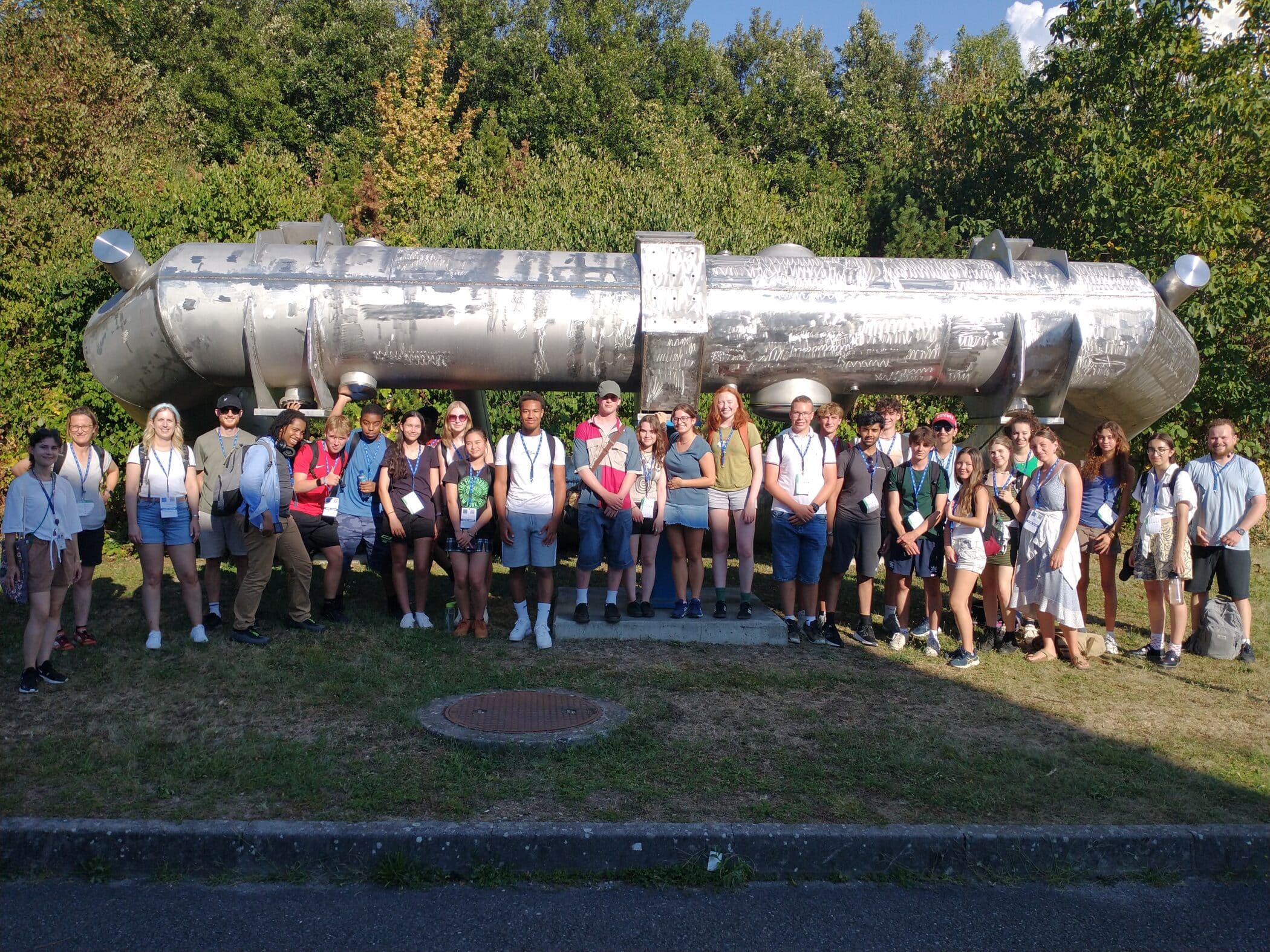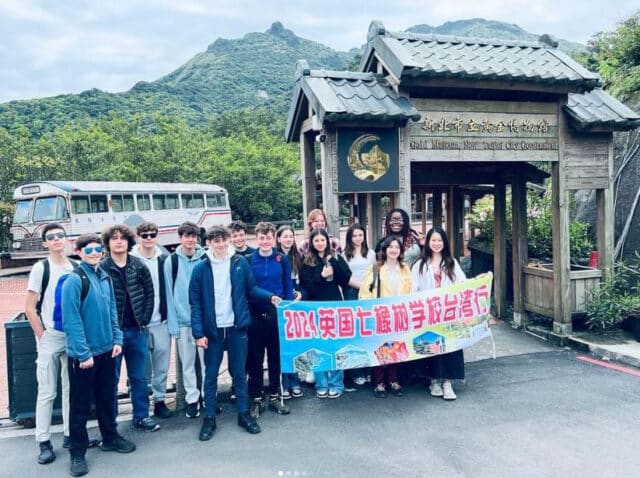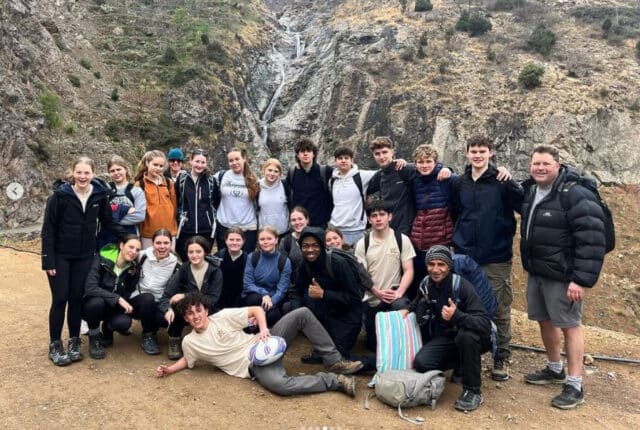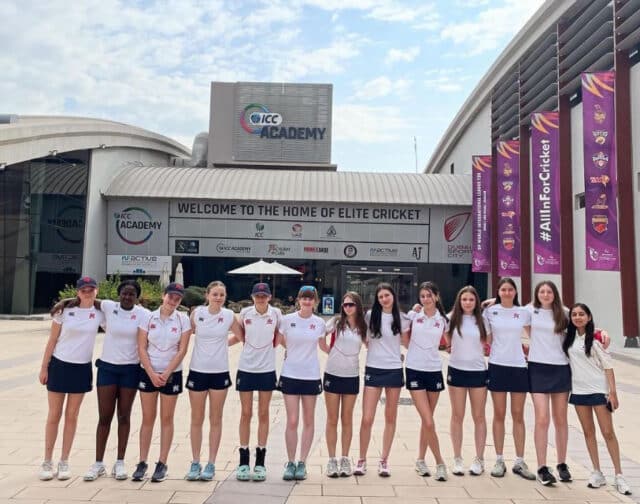The annual Liverpool@CERN Particle School is a multi-school residential trip to CERN, organised via a partnership between Sevenoaks School and the University of Liverpool.
Places are earned on the trip through an essay competition. Students from state and independent schools in Kent, London, Birmingham and Liverpool write an 800-word essay on particle physics, choosing a topic from a list. The essays are all marked by PhD students from the university, and the writers of the best 24 essays are selected for the trip.
Students can apply for the 2024 competition here. The deadline for submitting essays is 8pm on Sunday 28 January.
In August 2023, two students from Sevenoaks School were selected out of 72 entries. They reflect on their experiences below.
While I am sure there are many who might be outraged that a physics trip could be a prize for an essay writing competition, for me there was nothing more exciting than spending a week at CERN.
I wrote my essay about The Grid, an international distributed computing system that allows the vast amounts of data produced by the Large Hadron Collider (LHC) to be analysed by physicists all over the world. I was most fascinated by the engineering behind CERN’s experiments. A particular highlight was visiting the Compact Muon Solenoid (CMS), one of the four LHC detectors, where I saw and learnt about the different calorimeter and chamber designs used to track particle collisions. Some might say that the size of CMS was its most striking attribute, but I have to say I was almost more impressed when our guide used an eye scanner to get through the security doors!
At the end of the week, we were put in teams and challenged to design and present a new detector which solved a problem in the Standard Model. Our group proposed an improved version of the current detector CUPID, which uses cryogenic calorimeters to search for sterile right-handed neutrinos – one candidate for dark matter. As we collaborated and shared our presentations, just like the engineers, physicists, and data scientists around us, it struck me how exciting and rewarding it must be to work in such a stimulating environment.
Chatting to the physicists and learning about their research has given me such a unique perspective on how science should be conducted, and I would like to thank Liverpool Particle School and all the teachers that made such a wonderful and insightful trip possible.
Freddie Pointon
The Liverpool@CERN Particle School was an amazing experience!
One of the things I enjoyed about the trip were the six lectures we attended. They allowed us to dive deeper into the topics we wrote about in our initial competition essays. For example, I wrote about lepton universality violation and talked about hypothetical leptoquarks that can influence the strength at which leptons interact with the electroweak field. I also got to learn about dark matter, anti-matter asymmetry and parity violation from the other people on the trip. This exchange of knowledge between the people I met quickly brought us together creating a strong community.
We also gained insight into current CERN projects. We were surrounded by dedicated scientists of the astonishing GBAR experiment who were eager to investigate the potential discovery of gravity’s repulsive nature on antimatter. We even went 100 metres underground to see the colossal CMS detector. We were extremely lucky to do so, as our trip timed exactly with when the beam in the LHC was off due to a tree falling over causing a fluctuation in power which took out a magnet, allowing us to actually see the detector and walk through bits of it.
Overall, this experience of talking to real CERN scientists, engaging in extremely interesting lectures and just being in a place where discoveries are made, has made me even more excited to pursue physics and particle physics in the future!
Nastya Surzhyk



